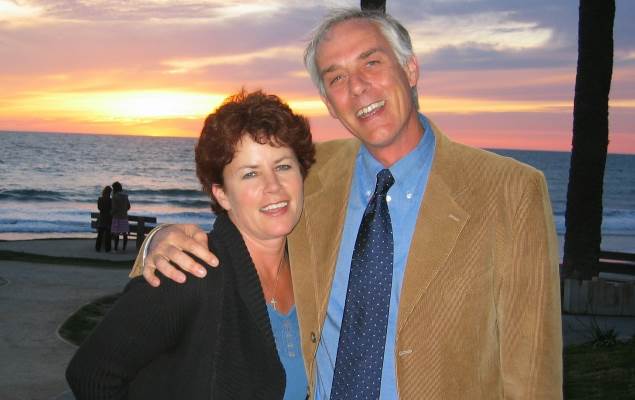
Roberto and Colleen Padovani Establish Scholarship for Electrical Engineers at UC San Diego
By:
- Katherine Connor
Published Date
By:
- Katherine Connor
Share This:
Article Content
When Roberto Padovani completed his undergraduate studies at the University of Padova in Italy and had the opportunity to pursue a Ph.D. at the University of Amherst in Massachusetts, the financial help of mentors made his trip to the U.S. possible.
In the nearly four decades since his arrival, Padovani was instrumental in developing the technology behind 3G communications and pioneered the concept of using the internet on a mobile device at Qualcomm, where he eventually held chief technology officer and executive vice president roles. He served as an advisor at the National Institute of Standards and Technology, and garnered more than 80 patents on wireless communication technologies.
Padovani never forgot the role that financial assistance played early in his career, and now he and his wife Colleen are establishing a $1 million endowed scholarship focused on exceptional undergraduates with financial need in the Electrical and Computer Engineering department at the Jacobs School of Engineering. His gift contributes to the Campaign for UC San Diego, which is focused on enhancing the student experience, enriching our campus community and sparking research and innovation.
“Both Colleen and I felt that, well, first of all, we felt lucky that we can do this,” Roberto said. “There’s a broad range of opportunities to do philanthropic work, but we both felt that helping students succeed was at the top of our list. Kids should not be blocked from succeeding because they don’t have the financial means, and if we can help with that, it would be great.”
This isn’t the Padovani’s first foray into supporting engineering students at UC San Diego. They helped establish the Jack Keil Wolf Endowed Chair in Electrical Engineering. They were also key contributors to the Jack Wolf Endowed Scholarship. Both of these projects honor the memory of Wolf, Roberto’s Ph.D. advisor, mentor and friend, and a professor of electrical and computer engineering at UC San Diego. Wolf was the person who suggested that Roberto move to San Diego from Amherst and accept a job at Qualcomm’s predecessor company, Linkabit.
The experience supporting the Jack Wolf scholarship and endowed chair professorship were so rewarding for Roberto, that he and Colleen knew this was the avenue for them to give back to their community.
“The students who received the Jack Wolf scholarship were so excited when I met them: excited about their careers and their opportunities,” Roberto said. “They want to make a difference in the world. I was really happy to have met these great, enthusiastic, appreciative students.”
The new scholarship for electrical engineering undergraduates at UC San Diego adds to growing excitement and energy surrounding hands-on and project-based electrical engineering undergraduate education at the Jacobs School.
Padovani serves as a faculty-affiliate in the Electrical and Computer Engineering department at the Jacobs School and an emeritus member of the Jacobs School dean’s Council of Advisors.
“We are so grateful to Roberto and Colleen for all of the time, financial support, expertise and mentorship they have given the Jacobs School over the years,” said Albert P. Pisano, dean of the Jacobs School of Engineering. “This scholarship gift will have a long-lasting impact on our students, allowing them to focus on their studies and engineering for the global good.”
Padovani knows a thing or two about engineering that benefits society. He spent two years at Linkabit before joining Qualcomm in 1986, where he developed digital communication systems for 30 years until he retired from his role as executive vice president this year.
While at Qualcomm, Padovani said there were two main technological advancements that he is most proud of. One was the development of code-division multiple access (CDMA), a new way to facilitate cellular calls and the technology underpinning 3G connectivity.
“The other was perhaps a little less known, but critical I think for the industry,” Padovani said. “That is the project I led to develop internet connection to cellphones-- basically high speed internet to cellphones. That was, in my opinion, just as big as CDMA, which was only for voice really. At the time that’s what people were worrying about. But we had the foresight to say ‘We have these devices, we need to connect them to the internet.’”
While Padovani has two massive success stories to his name, he cautions students that there were many failures behind the scenes.
“When you actually develop stuff-- when you build it, make it work and commercialize it, it’s a feeling that I don’t think has a match,” he said. “It really is very rewarding. To get one success story, you probably have to fail nine times before that, but when it happens it’s incredibly rewarding.”
Share This:
You May Also Like
Stay in the Know
Keep up with all the latest from UC San Diego. Subscribe to the newsletter today.



